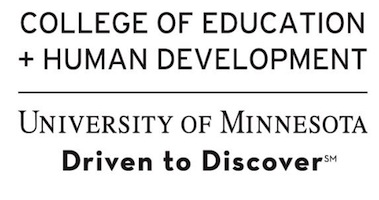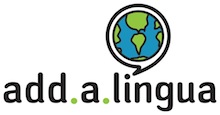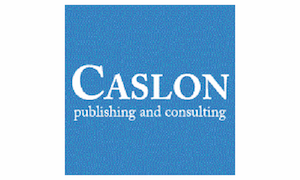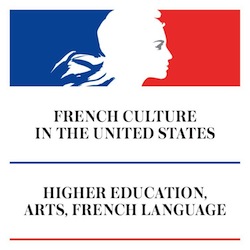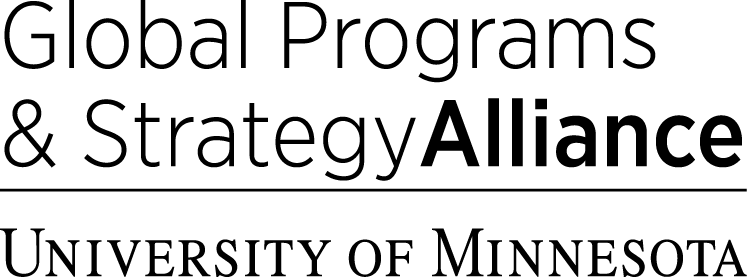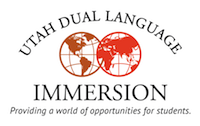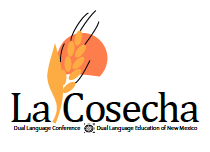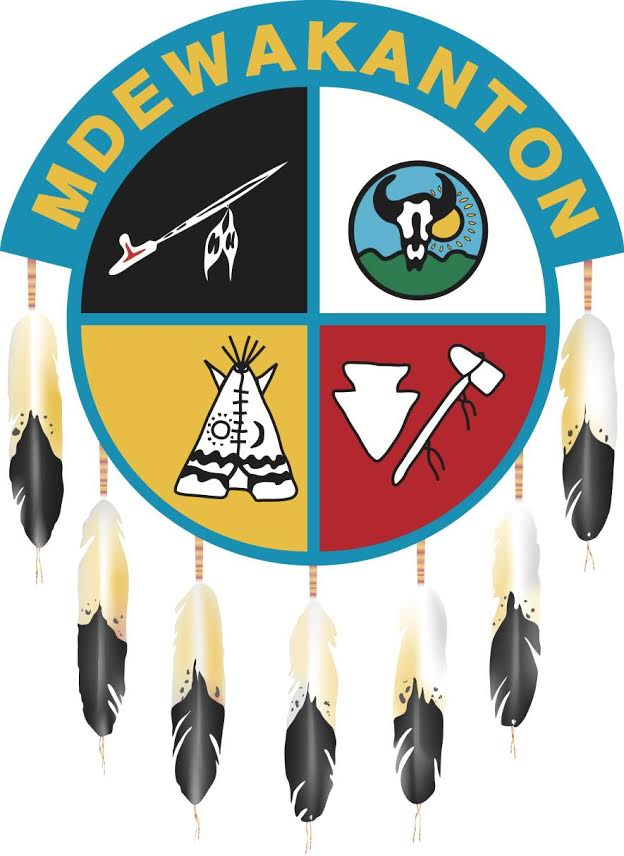Sixth International Conference on Immersion and Dual Language Education
Pre-Conference Workshops, Thursday, October 20
**Pre-registration required**
Conference participants may choose to register for 1 or 2 pre-conference workshops for an additional fee of $75 each (early-bird price). For more information about costs, see the Registration webpage.
Morning Workshops |
Afternoon Workshops
|
A Framework for Content-Language-Literacy Integration (AM1) Laurent Cammarata This workshop introduces participants to a content-based curricular framework designed to help immersion teachers concurrently target the teaching of content, advanced literacy skills, and academic language. The framework acts as a scaffold to facilitate the identification of key linguistic and literary demands within the context of varied subject matter instruction.
Greenway Ballroom A |
Integrating Language and Content Across the Immersion Curriculum (PM1)*This workshop is full. Roy Lyster
This workshop presents an instructional sequence that integrates language and content across the immersion curriculum. The sequence begins with a primary focus on content during the noticing phase then zooms in on language during the awareness and guided practice phases before returning to a primary focus on content during the independent practice phase. Greenway Ballroom A |
Examining Border Crossing Stories and the Immigrant Experience Through Literature (AM2)--Sorry, this workshop has been cancelled-- Sandra Springer
Caroline Sweet In this workshop, two elementary immersion teachers will share a unit of study they have used in their classrooms to help students examine issues surrounding immigration. Through a deep investigation of quality children's literature, students reflect on their own families' journeys and write their stories. All lesson plans and resources will be provided for participants. |
Teaching for Biliteracy: Strengthening Bridges Between Languages (PM2)*This workshop is full. Karen Beeman and Cheryl Urow Using a biliteracy framework and the three premises for planning and implementing biliteracy, participants will experience biliteracy in action. Videos, photos, and samples will illustrate what Spanish (or another non-English language), the Bridge, and English look like in a biliteracy program. Online resources and tools will be shared.
Greenway Ballroom B |
Preparing and Working with Assistant Language Teachers from Abroad (AM3)Lisa M. Dorner
This workshop will prepare your program to work with assistant teachers from other countries, like those from Amity.org. Through interactive activities, educators will develop their own "tool-kit" for: (1) supporting/training host families; (2) orienting assistants to the U.S. education system; and (3) providing mentorship plans for full-time teachers and their assistants.
Greenway Ballroom C |
Creating Effective Systems of Support for International Guest Partner Teachers (PM3)Ofelia G. Wade
Katherine Abuchaibe
The shortage of highly qualified teachers seriously threatens the sustainability of DLI programs. Many state and district administrators have resorted to international collaborative initiatives to meet this challenge. This workshop explores effective systems of support that facilitate the successful integration of international guest teachers into our local and academic DLI communities. Greenway Ballroom C |
IPAs and Immersion: Assessing Student Language Use in Academic Contexts (AM4)Stephanie Irizarry
Mandy Menke
Integrated Performance Assessments (IPA) hold great potential for assessing immersion students' ability to use the L2 to engage with academic content. In this workshop, presenters will overview the IPA and how it can be adapted to the immersion context; participants will develop themes and tasks for use in their own programs.
Greenway Ballroom D |
What Happens After Assessment?: The Impact of Assessment on Instruction (PM4)Stephanie Irizarry
Mandy Menke In this session, participants will explore how Integrated Performance Assessment (IPA) can inform instruction and program articulation. Participants will assess sample student performance, from which student instructional needs will be identified. Participants will hear reflections from lead learners on using adapted IPAs to inform instruction and student ownership of learning. Greenway Ballroom D |
Increasing Character-Based Word Knowledge: A 5-Step Process (AM5)Tara W. Fortune
Ping Peng
This interactive workshop will introduce participants to research-supported practices that expand character/word knowledge in Mandarin immersion classrooms. Participants will work together to develop an articulated series of activities for a text of their choosing. They will then be prepared to carry out similar activities and plans in their respective classrooms.
Greenway Ballroom E |
Developing Instructional Frameworks for Early Total Mandarin Chinese Immersion Contexts (PM5)Stacey Vanden Bosch
Yan Chen
This dialogic workshop describes a partnership with a local school that allows for the development and implementation of Mandarin Chinese instructional frameworks. This session explores: 1) immersion teacher collaboration; 2) literacy-based mini lessons with clear language objectives; and 3) linguistic feature form-focused activities based on an emerging Mandarin Chinese structural scope and sequence.
Greenway Ballroom E |
Time for Formative Assessment (AM6)Lynn Thompson
This workshop will familiarize participants with a new K–5 formative assessment tool: the Classroom Observation Checklist Kit, and provide guidance on how to integrate assessment and instruction in the classroom. Participants will experience sample CLOCK assessment activities and checklists through interactive discussions and simulations including hands-on practice with the CLOCK.
Greenway Ballroom F |
Listening and Oral Proficiency Assessment for Young Learners (PM6)Lynn Thompson
This workshop will familiarize participants with the Early Language Listening and Oral Proficiency Assessment (ELLOPA) used with language learners in preK–Grade 2 through assessment samples and hands-on practice. The presenter will also provide guidance on how to conduct effective summative oral proficiency and listening comprehension assessments with young learners. Greenway Ballroom F |
Immersion in the Middle Years: Keeping Language on Par with Content (AM7)Nathan Lee
Robyn Eliason
How do we support language learners so they can access rigorous content in middle school and beyond? How can we structure engaging activities to support critical thinking and advanced language use? These questions and more will be addressed. Attendees will experience proven strategies first-hand, see example units, and access additional resources online.
Greenway Ballroom G |
Secondary Immersion Programming: Challenges, Successes and Opportunities! (PM7)*This workshop is full. Liz Hathaway-Castelán
Elizabeth Dwight
Martha Johnson
Secondary immersion programs face special challenges as well as unique opportunities for immense student growth in language mastery and community building. In this workshop, key issues such as articulation, course selection, materials, curriculum development, staffing, and late entry will be discussed while presenting a few successful models. There will be time for questions and sharing by participants. Greenway Ballroom G |
Motivating Students to Write Through Digital Writing (AM8)Isabelle Punchard
Leverage the power of digital tools to improve students' writing! Through digital writing, immersion and dual language students can reach an authentic worldwide audience, motivating them to become better writers. Learn how to structure an immersion-friendly digital writer's workshop and see examples of students' digital writing using various tools.
Greenway Ballroom H |
Self-Regulation and Learner's Autonomy: Writing Strategies in Immersion (PM8)Josée Le Bouthillier
This workshop focuses on writing strategy instruction that foster self-regulation and learner's autonomy. I will discuss the findings and the classroom implications of a research project on writing development in an immersion context that focused on typically developing writers and at-risk writers.
Greenway Ballroom H |
Immersion Program Leadership: Five Strategies for Success (AM9)*This workshop is full. Teresa Carranza
Chris Holden
In this workshop, presenters will discuss five key strategies for leading immersion programs: know your program and the research that supports it; keep the focus on student learning; invest in developing and supporting teachers; strategically leverage time and resources; and use multiple measures to inform improvement and communicate growth. Participants will engage in facilitated discussion to learn from each other. Greenway Ballroom I |
All in Good Time: Making Classroom Minutes Count (PM9)Patsy Lightbown
One advantage of immersion and other content-based instruction is that students have more hours of contact with the new language. Even so, the importance of making good use of classroom time cannot be overstated. In this workshop, we will look at ways to make sure that every minute counts.
Greenway Ballroom I |
Before, During, and After: Optimizing Peer Interaction Activities in the Immersion Classroom (AM10)*This workshop is full. Susan Ballinger
This workshop examines the pitfalls and potential that peer interaction holds as a pedagogically effective means of developing students' oral proficiency. It particularly explores the teacher's role in designing peer interaction tasks, modeling and teaching reciprocal learning strategies, scaffolding student interactions, and promoting students' self-evaluation of their learning.
Greenway Ballroom J |
Cultivating Complexity: Differentiated Instruction for Linguistic Diversity (PM10)*This workshop is full. Amy I. Young
Pamela D'Andrea Montalbano Immersion classrooms increasingly include students with a large range of linguistic proficiency levels. This workshop will assist teachers in identifying how and when to implement strategies that expand all students' access to and use of academic language during content instruction. Participants will leave ready to implement language-focused differentiated instruction in their own classrooms. Greenway Ballroom J |
The Face of the Future: Recruiting and Serving Diverse Learners in an Immersion Setting (AM11)Cheryl G. Miller
This will be an exploration of what "recruiting diverse learners" means in various environments. Identifying which diverse learners you target when recruiting for an immersion program is of utmost importance. Our essential question for this exploration "Now that you have them, how do you keep them?"
Lake Calhoun |
Strategies for Keeping Primary and Secondary Students in the Target Language (PM11)*This workshop is full. Betsy Koop
This workshop connects belief about minority language status to pedagogy by sharing practitioner-designed strategies that keep students in the target language throughout instruction. By exploring a proven L2 only policy and timeline, model lessons, and incentive plans, participants are equipped to promote target language development for primary and secondary students. Lake Calhoun |
Aprendizaje Cooperativo: Estrategias para el Trabajo en Equipo Eficaz (AM12)Workshop to be offered in SpanishVicent Sánchez i Grande
Elizabeth Dwight
Taller introductorio en el aprendizaje cooperativo. Se trata de una sesión práctica para aprender recursos y estrategias que permiten estructurar los contextos orales para el desarrollo lingüístico y académico. Estas técnicas garantizan la responsabilidad individual y el compromiso grupal en el trabajo en equipo de los estudiantes, así como la interacción equitativa. Lake Harriet |
Learning Centers for the Primary Grades (PM12)*This workshop is full. Rosa Sala-Healey
Kim Wieber du Saire
What are learning centers? How can you use them to reinforce language and to differentiate instruction? Where to begin? These questions and more will be addressed in this dynamic hands-on workshop. Participants will create learning centers activities, and leave with ideas, materials, and the knowledge to implement learning centers in their own classrooms.
Lake Harriet |
Modern Terms and Ancient Resonance: Creating a Dynamic Future through Indigenous Language (AM13)Gordon Jourdain Wilhelm Meya
Community-based preservation, educational and advocacy groups are at the forefront of creating a sustainable future for endangered Indigenous languages. Presenters will discuss their process for synthesizing new vocabulary and curriculum for contemporary programming needs, adapting traditional cultures to classroom settings, and keeping teaching and learning authentically Indigenous in changed contexts of delivery and use.
Lake Minnetonka |
Cultivating Cultural Identity within Hawaiian Medium Education (PM13)Makalapua Alencastre
Kalehua Krug This workshop will focus on the integration of Hawaiian language and culture into distinct practices and protocols within Hawaiian medium education. Experiential learning through culture-based pedagogy will be highlighted as a means to foster a strong sense of cultural identity. Participants will consider the relevancy of concepts and practices to their particular immersion contexts as well as engage in hands-on cultural activities.
Lake Minnetonka |
Book Floods and Clubs: Promoting Reading in a Heritage Language (AM14)Tina Hickey
Claire M. Dunne
This workshop will present strategies and resources for promoting L2 heritage language reading and cross-cultural learning, based on our research on Irish reading. We will offer hands-on exploration of a range of bilingual/multilingual books and digital texts, and offer opportunities to reflect on adapting them for use in other languages. Lake Nokomis |
Supporting At‐Risk Second Language Readers (PM15)
--Sorry, this workshop has been cancelled--
Renée Bourgoin This session focuses on supporting second language learners at risk for reading difficulties. We explore factors that impact the identification of at-risk readers and ways to better identify them. We also examine the reading development of at-risk and typically developing L2 readers and differentiated reading instruction practices that help support a wide range of readers.
Lake Nokomis |



